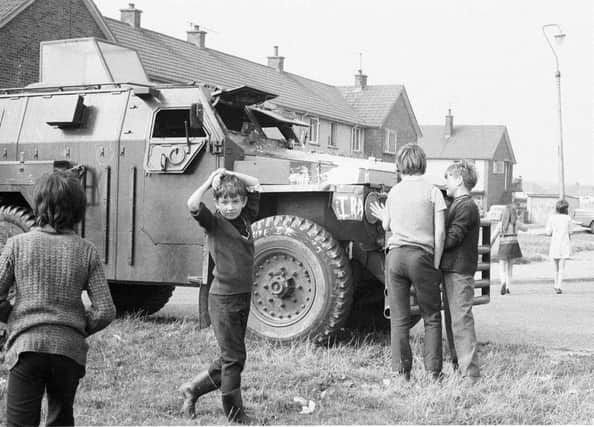Derry-based NI Troubles archive secured with new funding


Cain - Conflict Archive on the Internet - covers the history, key events and political issues of the modern conflict, dating back to 1968.
Based at Ulster University’s Magee campus in Derry, its future and staffing had been in doubt.
Advertisement
Hide AdAdvertisement
Hide AdHowever, new funding means the archive will be retained and will expand. It will also pay the salary costs of three staff.
Cain has been freely available on the internet since March 1997 and new material is added to it frequently.
It includes thousands of documents, photographs, articles and biographies, and is widely used by academics and students researching the recent history of Northern Ireland.
It’s understood the funding from Initiatives for Change is for two years but will ensure the future of the archive for longer.
Advertisement
Hide AdAdvertisement
Hide Ad“The enhancements will ensure the long-term sustainability of Cain by reducing the cost and complexity of maintaining the archive and making it possible for more academics to get involved in the curation of relevant and engaging materials,” said UU.
“The university is also making funds available to invest in the technology that will enhance the experience for all those who use the popular platform and it will support the salary costs of three staff.
“The team of three who work on Cain continue to be based at Ulster University’s Magee campus.”
The Irish Government’s Department of Foreign Affairs Reconciliation Fund has also provided project funding to enable a chronology of the conflict on Cain to be completed.
Advertisement
Hide AdAdvertisement
Hide AdProfessor Paul Seawright, from UU, said the archive would be updated using new technology.
“This investment is a historic opportunity to incorporate a range of new digital technologies that have emerged over the past two decades, and to reach new audiences,” he said.
“It is our ambition that Cain will be a fascinating and lively online space for young people and educators wanting to connect with and understand the past.”